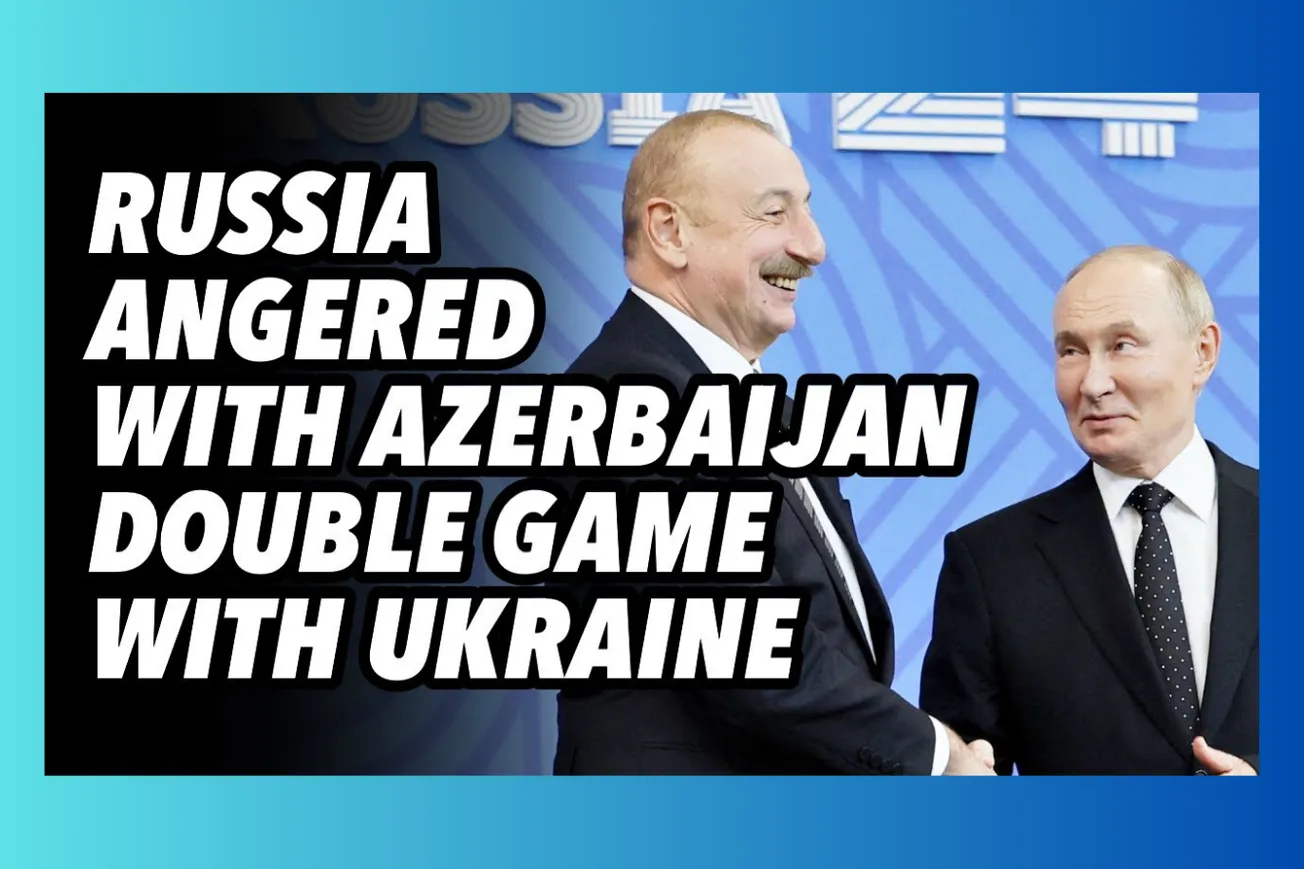Table of Contents
Russia's crackdown on Azerbaijani criminal networks has exposed a complex web of regional betrayals and geopolitical maneuvering across the Caucasus.
Key Takeaways
- Russia arrested Azerbaijani criminal syndicate members, prompting Azerbaijan to retaliate by detaining Russian citizens
- Azerbaijan has been secretly supporting Ukraine while maintaining diplomatic relations with Russia
- Azerbaijani oil refineries in Ukraine became Russian missile targets, escalating bilateral tensions significantly
- Turkey's Erdogan orchestrates complex regional games, facilitating both Ukrainian support and Israeli strikes on Iran
- Armenia's Pashinyan shockingly sided with Azerbaijan against Russia despite historic Russian-Armenian ties
- UK's BP and Israeli interests heavily influence Azerbaijani energy policy and regional positioning
- Pashinyan attacks the Armenian church while pursuing NATO membership through Turkish approval
- The crisis reflects broader patterns of Western NGO influence destabilizing traditional regional relationships
Criminal Networks Trigger Diplomatic Crisis
- Russian authorities finally moved against an Azerbaijani criminal syndicate they had tracked since the early 2000s, arresting key members in the Urals region. Several gang members died during the raids, which targeted organized crime figures who were Russian citizens of Azerbaijani origin but maintained strong connections to criminal networks underpinning the Azerbaijani government.
- Azerbaijan's government retaliated with widespread arrests of Russian citizens living in Azerbaijan, charging them with espionage and subjecting them to rough treatment. The arrests appear designed as leverage to force Russia to release the detained crime syndicate members through prisoner exchanges.
- The Azerbaijani government's deep interconnectedness with various crime syndicates makes this more than a simple law enforcement matter. Corruption has characterized the system for decades, with criminal affiliates pushing government officials to secure the release of their arrested associates in Russia.
- Russia's decision to finally act against this organized crime group signals broader frustration with Azerbaijan's duplicitous regional behavior. The timing suggests Moscow used the criminal crackdown as a deliberate message about Azerbaijan's other problematic activities.
Azerbaijan's Ukrainian Connection Exposed
- Russian missile and drone strikes against Ukrainian oil refineries revealed Azerbaijan's secret support for Ukraine through energy cooperation. Azerbaijani oil shipped to Europe gets refined in these Ukrainian facilities, making the refineries dual-use targets affecting both Ukrainian capabilities and Azerbaijani revenues.
- The refinery attacks infuriated Azerbaijani authorities, who interpreted them as direct Russian economic retaliation during a period of falling oil prices. With tighter budgets reducing available funds for distribution among various Azerbaijani power centers, the strikes hit particularly hard economically.
- Turkey facilitated much of this Ukrainian support, with Erdogan providing Syrian army artillery stocks to Ukraine while simultaneously maintaining relations with Russia. This complex double game exemplifies Erdogan's regional manipulation tactics, playing multiple sides simultaneously.
- Azerbaijan's support for Ukraine occurred alongside its assistance to Israel in conducting strikes against Iran, another Russian partner. Drop tanks from Israeli drones and aircraft have been spotted floating in the Caspian Sea, providing evidence of Azerbaijani complicity in anti-Iranian operations.
Erdogan's Regional Chess Game
- Turkey's president orchestrates incredibly complex and duplicitous regional strategies, maintaining relationships with opposing sides while facilitating actions that harm his supposed partners. Erdogan fiercely denounced Israel publicly while simultaneously allowing Azerbaijan to assist Israeli strikes against Iran from Azerbaijani territory.
- The Turkish leader's games extend beyond simple opportunism into systematic regional destabilization, using proxies like Azerbaijan to advance multiple conflicting agendas. Russia's actions against Azerbaijan serve as a clear message to Erdogan that his red line crossings have consequences.
- Erdogan's Syrian artillery transfers to Ukraine particularly angered Russian officials, representing a direct military contribution to anti-Russian efforts. These weapons came from Syrian army stocks, making Turkey's betrayal of its supposed Syrian partnership even more egregious.
- British Petroleum's heavy investments in Azerbaijani energy sector provide additional Western influence over Baku's policies, with UK interests potentially encouraging anti-Russian positions. The combination of Turkish, Israeli, and British backing emboldens Azerbaijan to escalate against Russia.
Armenia's Unnatural Western Pivot
- Armenian Prime Minister Pashinyan shockingly sided with Azerbaijan in its dispute with Russia, despite Armenia's historic ties to Moscow and ongoing dependence on Russian security guarantees. Armenian officials even discussed banning Russian media in a country where most citizens speak Russian and maintain strong cultural connections to Russia.
- Pashinyan's anti-Russian campaign includes attacks on the Armenian Apostolic Church, attempting to arrest church hierarchs despite the institution's central role in Armenian national identity. Armenia was the first nation to adopt Christianity, making Pashinyan's assault on the church particularly shocking culturally.
- The Armenian leader's ultimate goal involves NATO membership, which requires Turkish approval and explains his willingness to meet with Erdogan despite Turkey's denial of the Armenian genocide. Pashinyan pursues this despite even the US president recognizing the Armenian genocide.
- This represents the same pattern seen in Georgia, where Western-financed NGOs captured the government and led the country into disastrous confrontations with Russia. Georgia lost territory and eventually rejected this approach, with Armenia likely to follow the same trajectory.
The Broader Pattern of Regional Manipulation
- The crisis reflects systematic Western efforts to destabilize traditional relationships through NGO-influenced leadership changes across the former Soviet space. These color revolution patterns consistently lead to territorial losses and economic disasters for the targeted countries.
- Russia's firm stance against Azerbaijan signals broader pushback against this regional destabilization campaign, using both law enforcement and economic pressure to counter Western-backed manipulation. The message extends beyond Azerbaijan to other regional actors playing similar games.
- Putin will likely engage in direct conversations with both Aliyev and Erdogan to establish new red lines and potentially negotiate some face-saving compromise. However, Russia's tolerance for duplicitous behavior appears to have reached its limits.
- The interconnected nature of these regional conflicts demonstrates how criminal networks, energy politics, and geopolitical maneuvering combine to create complex multi-layered crises that require sophisticated responses.
Russia's crackdown exposes the unsustainable nature of Azerbaijan's double game while Armenia pursues an equally irrational anti-Russian pivot. These Western-influenced policy shifts consistently lead to territorial losses and regional instability, suggesting eventual reversals as populations reject failed strategies.





